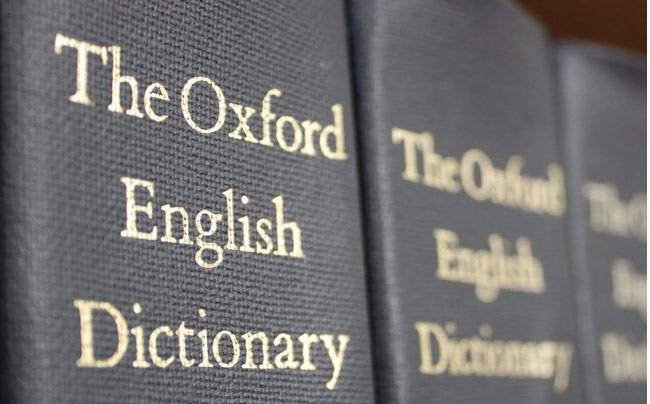Sudha Devi Nayak
It was in the eighteenth century that the British felt the want of a good dictionary to know their language in more detail. Dictionaries were there with lexicographers making tremendous efforts at corralling the entire language. One of the greatest literary figures of all time, Samuel Johnson created “A Dictionary of the English Language” which has remained ever since, a portrait of the language of the day in all its majesty, beauty, and marvellous confusion. With such illustrious predecessors, the monumental OED took birth in 1857, which took 70 years to complete. Simon Winchester, a geologist and globetrotting correspondent and writer tells us in his fascinating novel the genesis and journey of the great dictionary that symbolises everything English. “The Professor and the Madman: A Tale of Murder, Insanity and the Making of the Oxford English Dictionary” is the story of the strange collaboration of two men to produce the definitive of all guides to the language that for good or ill has become the lingua franca of the civilized modern world.
The two protagonists of the tale are, apart from the dictionary itself, the great philologist editor of OED, Dr James Murray and an American army surgeon, William Chester Minor, a murderer incarcerated at an asylum for the criminally insane, who made the dictionary possible with their magnificent obsession for words. Murray is a towering figure in British scholarship who had an impassioned thirst for knowledge and believed in ‘vita diligentissima’ – nothing is better than a most diligent life. Murray after an interview with a formidable committee was appointed editor of OED. While Murray was of humble origin, Minor graduated from Yale Medical School and applied to the army during the civil war. Born in the serendipitous island of Ceylon, to missionary parents, experiencing the beauty of the island, he had access to a good life.
The exposure to the war and its horrors resulted in a mental condition that made him unfit for the army. He left for London in a disturbed condition with his books, easel, water colours, his paranoia and delusions. In London he took up quarters in Lambeth, a disreputable suburb and ended up killing, pursued by a psychotic fantasy, a man he had never known or met, George Merret. Dr Minor on trial was found not guilty on grounds of insanity but would be detained in permanent custody as a criminal lunatic.
To go back to the dictionary, the prodigious efforts of dictionary makers in seventeenth and eighteenth centuries were merely stepping stones to the stellar efforts made for OED. The new project wanted every word of the English language with its evolution, meanings, shades, and nuances spelling and pronunciation, every illustrative citation from every English author. Since this titanic task was not possible without ‘crowd sourcing’, an appeal from Murray went out to volunteers to find words, supply quotations and definitions. This appeal was enclosed with books and journals, to shops and libraries. Meanwhile, stricken with remorse, Minor reached out to Eliza Merret, the widow of George Merret, with financial offers. She accepted the gesture, came to see him, collecting books on his behalf from London. It is in one of these books he found Murray’s appeal. After a decade of imprisonment Minor’s self-worth began to re-emerge. He responded and Minor’s contributions were remarkable with 12,000 quotes furnished with astonishing accuracy and detail. Unaware of Minor’s condition, Murray undertakes a journey to meet him. Amazed at finding the truth about Minor a firm friendship began with mutual respect and love of words lasting twenty years.
However with time, Minor’s health deteriorated, he was allowed to leave for an asylum in Washington and subsequently shifted to a hospital for the elderly insane in Hartford Conn and died at the age of 85 in 1920 in obscurity. It is sad and ironical that his very insanity and incarceration has granted us the dictionary. Murray with OED still incomplete died at 76 in 1915. Both men earned their redemption through the dictionary. But most unsung of all the players in the drama is George Merret to whom Winchester magnanimously dedicated his novel.
The OED was completed on New Year’s Eve 1927 and was announced on the front page of the New York Times. The work was done and the alphabet exhausted. The newspaper called it “one of the great romances of English Literature.”
